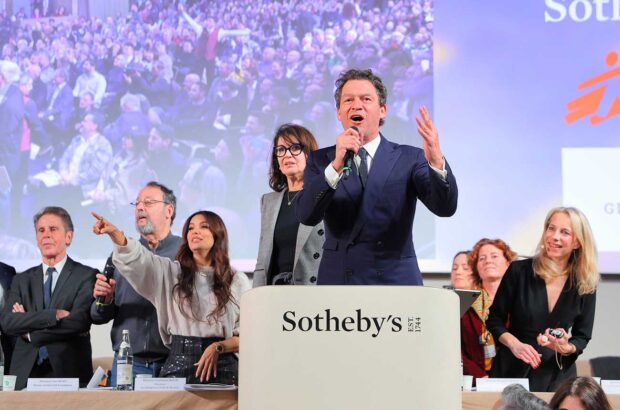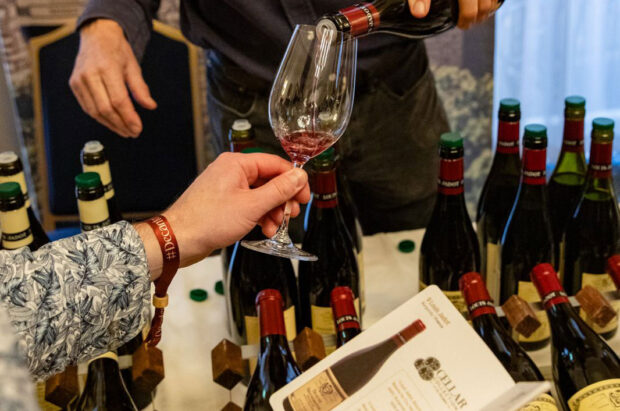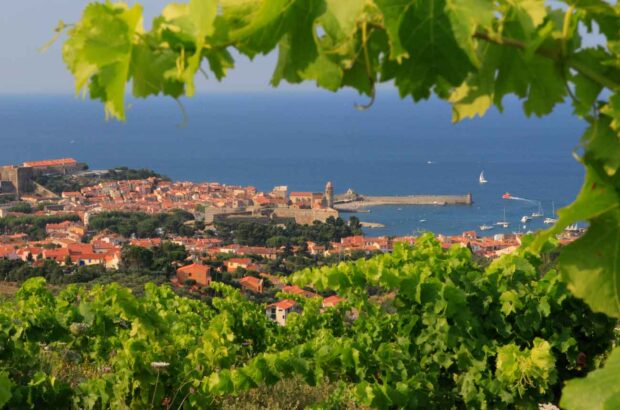Shrewd, determined investment has propelled demand for kosher and non-kosher wines beyond Israel’s borders. STEPHEN BROOK visits and asks whether the country’s wineries – and politicians – are equipped to cope.
For practising Jews, kosher wine is integrated into daily life. It’s key in Sabbath dinners, and at the Passover Seder feast, participants sip from four glasses of wine. So it’s not surprising that, in the 19th century, Jewish settlers in the Holy Land planted vineyards to replace those that had vanished under Ottoman rule. Baron Edmond de Rothschild, son of the owner of Château Lafite, created the Carmel wine estate, which still exists. But if Jews were enjoined to drink wine on ritual occasions, there was nothing in scripture to say it had to be good. As recently as the 1980s, wine made in Israel was of miserable quality: either supersweet sacramental wines like Manischewitz, or drab, often oxidised table wines made from Cabernet Sauvignon or Carignan. Then the Golan Heights Winery was founded. Syrian attempts to pound Israeli villages into dust from the Heights during the 1973 Yom Kippur war were resisted, and Israel took possession of this volcanic plateau.
Cornelius Ough, a professor from California, suggested the Heights would be ideal for viticulture so, in 1976, eight Israeli settlements pooled their resources and began planting. Grapes were sold to Carmel but, in 1983 the Golan Heights Winery made its first wines, to immediate acclaim. The modern Israeli kosher wine industry was born, using international grapes as well as the latest wine techniques imported from California by consultants.
https://www.decanter.com/wine-news/crusade-winery-found-israel-422625/
Now there’s a new revolution, as some hobby winemakers have started commercial production. Kibbutzim, too, have planted vineyards on favourable sites and created their own wineries. New regions, such as the Judean Hills around Jerusalem and Arad by the Negev desert, are green with kosher vines. At last count there were some 200 boutique wineries – impossible to imagine back in 1989, when Margalit, the first of them, opened. Five companies may control 82% of Israel’s wine market, but these new wineries are snapping at their heels. Until the 1980s, Israeli winemakers were graduates in food technology. Today, wineries are stuffed with graduates from UC Davis, Beaune and Adelaide. There is no longer much tolerance for winemaking faults, yet under- and over-ripeness, overoaking and over-extraction are common. Nevertheless, quality is remarkably high. At last year’s Decanter World Wine Awards, a Clos de Gat Chardonnay was awarded a Regional Trophy among Israel’s five Silver medals and eight Bronzes. Robert Parker’s Wine Advocate has also awarded 14 of the country’s wines 90 or more points.
The big wineries have smartened up. Barkan, Recanati, Segal and Teperberg produce significant volumes, but good value wines too. Carmel has opted for quality not quantity at the top end of its range, although it remains Israel’s largest producer. It has planted new vineyards in Upper Galilee near the Lebanese border, arguably the country’s best viticultural region. Carmel has also had the sense to retain its old-vine plantings of workhorse varieties such as Petite Sirah and Carignan, but to reduce yields and treat the wines seriously. Other wineries, like Vitkin, are also making the most of these old vines. Without any indigenous varieties, Israel’s focus is on Cabernet Sauvignonand Merlot. When it ripens, Cabernet produces a more elegant wine, but Merlot often gives better results in some of the cooler spots in the Judean Hills and Galilee. There’s a touch of greenness in many Israeli versions of the Bordeaux grapes, sometimes giving complexity, more often a hard edge.
Doron Belogolovsky of Vitkin says: ‘The window for harvesting is narrow. There may be just a few days when a vine reaches optimal ripeness before the fruit becomes jammy.’ Forging ahead Syrah is a new star here, giving a delectable vibrancy of fruit. Dabblings in varieties such as Viognier, Sangiovese, Zinfandel, and Barbera are yielding patchy results. Israeli winemakers are still experimenting, working out what works best in their sites. Most wineries have some good bottles, but often the range is inconsistent. Film maker Ze’ev Dunie, founder of Sea Horse Winery, has a magic touch with old-vine Chenin Blanc, Syrah and Petite Sirah, but can be hitand- miss with other wines. Despite the youth of the reborn Israeli wine industry, it is becoming easier to identify the best estates. Golan Heights remains on top form under long-term winemaker Victor Schoenfeld, offering well-made basic blends and some splendid single-vineyard Cabernet, Merlot and Syrah. With 640ha (hectares) under vine, it is Israel’s finest large estate. Expansion may be slightly inhibited by the uncertain status of the Golan. Shalom Blayer, the company’s CEO, notes: ‘If there were to be a peace deal with Syria, the Syrians would want bare land, not our vines. On the other hand, a peace deal looks unlikely for as long as Syria remains aligned with Iran. So our working assumption is that the Golan will remain Israeli.’
Although its landscape is littered with rusting tanks and active minefields, the Golan is at peace. Not so the Upper Galilee, which was heavily shelled during the Lebanese confilct of 2006, with some wineries forced to temporarily halt activity. Golan Heights has a joint venture here with Kibbutz Yiron called Galil Mountain Winery. Winemaker Micha Vaadia describes the constraints: ‘As we’re right on the Lebanese border, the winery was taken over by the army in 2006 during the conflict. Fortunately the army left in time for us to harvest. Katusha rockets from Lebanon have landed in our vineyards. No one was hurt, but we lost a dozen Syrah vines. Could have been worse.’
Nonetheless Galil Mountain has made an excellent Bordeaux blend, Yiron, in the same Napa style as Golan Heights. From the same region comes Altitude, Barkan Winery’s three separate bottlings of Cabernet grown at different elevations. Closer to Jerusalem is the French-influenced Domaine du Castel, which has enjoyed continuing fame since Serena Sutcliffe MW tasted the wines and raved about them in 1995. Both the Chardonnay and the Grand Vin (a Bordeaux blend) are distinguished if expensive. Other leading wineries in the area include Ella Valley, with its Burgundy-trained winemaker; Clos de Gat; and the patchy but often excellent (if overpriced) Hevron Heights. Other good wineries include Margalit;
Yatir and its New World-style reds; Vitkin’s remarkable dry Riesling and Petite Sirah; and Tishbi, with its Cabernet Franc. Worth keeping an eye on are Avidan, Gvaot, Saslove, Tanya, Tulip, and the Italian-influenced Chillag and Flam. But finding the wines outside Israel still isn’t easy. The cheaper wines probably lack the individuality to attract importers, while the classier bottlings are probably too expensive to compete with equivalent wines from other countries. Barry Saslove of his eponymous winery says: ‘Rich Israelis still assume that the more a wine costs, the better it is. That encourages some wineries to indulge in some fairly cynical pricing strategies.’
However, there is a substantial market, especially in North America, of wellheeled Orthodox Jews who want to drink well but need to drink kosher (see box, left). Some wineries, like Domaine du Castel, have switched to kosher production– not out of new-found religious zeal but because making non-kosher wines would mean losing a swathe of the market. On the other hand, promoting a winery’s kosher credentials too forcefully could mean consigning its bottles to a niche section of US wine stores. Five years ago, Israel was trailing other emerging regions in distribution and quality. Quality, entrenched in a New World approach, is strong and growing. There are more boutique wineries than this limited market can support, so at some point there will be a shakedown. The hope is that it will leave Israel’s wine industry smaller but more consistent.







